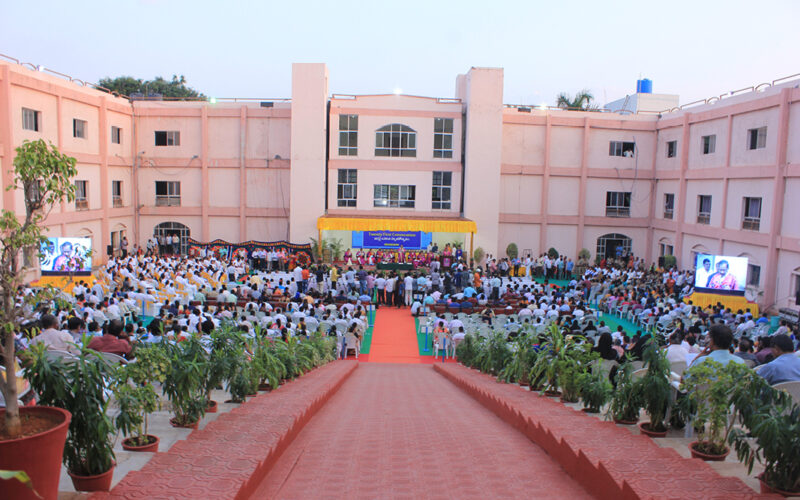
By Professor G. Pushpa Chakrapani
Director, Centre for Online Education & Learning
BRAOU, India
Dr B.R. Ambedkar Open University (BRAOU) was founded in 1982 as India’s first open university, with a vision of Education for All. Initially named Andhra Pradesh Open University, it was renamed in 1991 to honour the eminent Indian social reformer and constitutionalist, B.R. Ambedkar. Since then, the university has evolved into a cornerstone for distance education in India.
BRAOU’s service to higher education is formidable, as it caters to approximately 450,000 students across Telangana and Andhra Pradesh states through an extensive network of 137 study centres and 23 regional co-ordination centres. The university distinguishes itself by making higher education accessible to all segments of society, thereby addressing shifting societal and individual needs.
Over the past two decades, BRAOU has collaborated extensively with CEMCA, a regional entity of COL. This symbiotic relationship has been instrumental in shaping the university’s open educational resources (OER) policy and has served as an exemplary model for other open universities in Andhra Pradesh and India more widely.
The collaborative effort has been two-fold: firstly, formulating and operationalising an effective OER policy through faculty orientation and capacity building; secondly, pioneering initiatives such as micro-credentials by establishing quality standards for them. This involves the meticulous planning of course details, assessment methods and quality assurance measures.
Currently, under the leadership of Vice Chancellor Professor K. Seetharama Rao, BRAOU is leveraging three pioneering practices to augment its educational delivery:
- The institution of a robust helpdesk to offer consultative services to learners.
- The creation of an expansive OER repository specialising in Telugu literature and other rare materials, making it a remarkable resource.
- The initiation of a standardised, benchmarked system for delivering high-quality, employment-driven micro-credentials in conjunction with traditional courses.
As BRAOU commemorated its 40th anniversary in open and distance learning, it launched its Online Learning Portal, offering massive open online courses (MOOCs) that are meticulously developed across four quadrants – e-content, e-tutorials, asynchronous and synchronous learning interactions, and comprehensive assessments.
COL and CEMCA have consistently supported BRAOU’s endeavours by formulating job-centric micro-credentials, thereby setting a template for other educational institutions to follow. Future collaborations will include assisting the university with integrating a blended learning approach into its curriculum.
Recently, BRAOU and COL–CEMCA have jointly offered various open online courses, including a notable MOOC on Stress Management. Additionally, BRAOU has recently joined the list of Indian universities offering CEMCA’s MOOC on course development for the SWAYAM platform, with more than 240 faculty members benefiting from it. SWAYAM is an Indian government initiative offering free online courses to a diverse learner population, aimed at fulfilling the cardinal principles of India’s Education Policy: access, equity and quality.
The Vice Chancellor underscored the transformative impact of the long-standing BRAOU and COL–CEMCA partnership, highlighting its role in making education not merely a pathway to knowledge but also a conduit for vocational aptitude. The collaboration between these two organisations continues to set benchmarks in open education, ensuring the fulfilment of academic and professional aspirations for a diverse populace.


